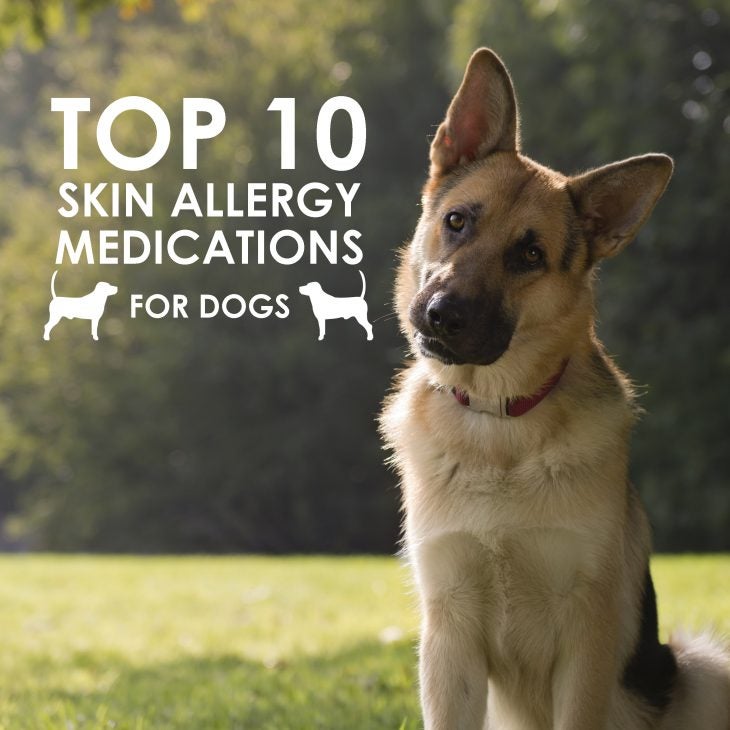Free Facts On Deciding On Collagen For Dogs
Wiki Article
What Are The Ways That Cat And Dog Skin Allergies Treated With Probiotics?
Probiotics could play a crucial part in controlling and relieving allergies of the skin in dogs and cat. Probiotics are beneficial and help to maintain a good microbiome in the gut. This is in turn beneficial to the immune system and skin. Probiotics are a great way to treat skin allergies in pets:
Immune System Regulation
Balanced Immune Reaction
Function: Probiotics aid in regulating the immune system by promoting the growth of beneficial bacteria and inhibiting harmful bacteria in the intestine.
Benefits: A balanced immune system can lessen hypersensitivity reactions which contribute to skin allergies. This can help reduce the severity and frequency of allergic reactions in pets.
Inflammation Reduction
Anti-inflammatory Effects:
Function: Certain probiotic strains can be used to control the body's inflammation reactions and create anti-inflammatory substances.
Benefits: Reduction in systemic inflammation can reduce the itching and inflammation that are associated with skin allergies and result in a healthier and more youthful skin.
Gut-Skin Axis
Improvement of Gut Health
Function: Gut-skin axis refers to the link between skin and gut health. Probiotics can improve the gut barrier and digestion health.
Benefits of a healthy gut: It helps to prevent the leakage toxins or allergens in the bloodstream. This can trigger skin reactions. This could lead to a reduction in the symptoms of skin allergies.
Strengthening Skin Barrier
The Skin Barrier Function is Improved:
Function: Probiotics possess the capacity to affect the production and distribution of ceramides, as well as other lipids essential for maintaining a strong skin barrier.
Benefits A thicker skin barrier can help to protect against allergens from the environment. This reduces skin infections and allergic reactions.
Allergy Symptom Management
The Symptom Relief
Function: Probiotics have the ability to ease symptoms by modulating release of histamines, as well as other chemicals that are involved in allergic reactions.
Benefits of this product: Reduces itching and discomfort for pets suffering from allergies.
Improved Microbial Diversity
A Boost in Diversity of Microbes:
Function: They increase the diversity within the gut microbiome. This is vital to ensure that the immune response is well-balanced.
Benefits: A diverse microbial community can enhance overall health and skin health by preventing increase in bacteria that could trigger allergies.
Particular Probiotic Strains
Lactobacillus and Bifidobacterium They are two commonly used probiotic strains which have been shown to be efficient in reducing allergies to the skin in pets.
Lactobacillus Rhamnosus GG: It is well-known for its capacity to improve gut health and reduce the symptoms of allergies.
Bifidobacterium Aegypti: It aids to reduce inflammation and improve the immune system.
Usage Considerations
Dosage: The dosage of probiotics will be determined by the size of your pet's body, weight, and the requirements for health of your pet. You should always adhere to the advice of your vet or product instructions.
Formulations: Probiotics can be found in a variety of forms for pets, including capsules, powders and chews. Choose a product that is secure and beneficial for your pet.
Monitoring and Side effects Although probiotics are considered safe generally, it is essential to watch your pet for reactions that could cause digestive upset. By starting with a low dosage and increasing it gradually to minimize negative reactions.
The final sentence of the article is:
Probiotics can assist combat allergies to the skin of pets and cats by improving digestive health, regulating immune system and reducing inflammation. Regular consumption of probiotics could help reduce allergic symptoms, and promote healthier skin and a better quality of life for pets. Check out the top her explanation for pet wellbeing for more tips including pet kidney supplements, pet lactation supplements, pet supplements for pets with fear of muzzles, pet red clover supplements, pet milk supplements, nutritional supplements for dogs, pet supplements for pets with hair loss, pet supplements for active pets and more.

What Is The Way That Cat And Dog Kidney Failure Helping With Astragalus?
Astragalus, a traditional Chinese herb, is able to help manage kidney disease in dogs as well as cats because of its anti-inflammatory and immunomodulating properties. Astragalus may help in a number of ways.
Anti-inflammatory properties
Reduce inflammation:
Astragalus' anti-inflammatory effects are due to compounds like polysaccharides and flavonoids.
Benefits Reducing inflammation can help decrease kidney damage, ease symptoms and improve overall kidney function.
Antioxidant Effects
Reduce Oxidative Stress
Astragalus is rich in antioxidants that neutralize free radicals that cause cell damage.
Benefits: Astragalus protects kidney cells by reducing the oxidative stress. This helps improve kidney function and slow disease progress.
Immunomodulation
Immune System Support:
Astragalus is a moderator of the immune system. It enhances its ability to fight infection and also reduces autoimmunity.
Benefits Healthier immune system helps to prevent infections, and reduce the risk of immune system's autoimmune reactions, which can lead to kidney damage.
The improvement of Kidney function
Enhancement Glomerular Filtration (GFR).
Astragalus has been proven to improve kidney function. It achieves this by increasing the glomerular filtrate rate.
Benefits Improved filtration aids in helping the kidneys eliminate waste products more effectively. This helps alleviate symptoms of renal impairment and improve overall health.
Anti-fibrotic Benefits
Prevention of Kidney Fibersis
Astragalus has anti-fibrotic properties which can help stop the growth and growth of scar tissue around the kidneys.
Benefits: Reducing fibrosis is important for maintaining functional kidney tissue in animals suffering from chronic renal disease.
Cardiovascular Support
Assistance for Cardiovascular Health
Astragalus supports healthy blood pressure and heart function, as well as cardiovascular health.
Benefits: Better cardiovascular health enhances the overall health of pets, especially those with kidney diseases.
Diuretic effects
Urine Promotion of Flow
Effect: Astragalus may have mild diuretic effects that help to boost the flow of urine and encourage the excreta of waste products.
Benefits: A better flow of urine can aid in regulating fluid balance and decrease the accumulation of toxins within the body, while also supporting kidney health.
Use and Considerations
Dosage Administration, Dosage Amount of Astragalus to give depends on the size, weight, and overall health of your pet. Always follow the advice of your vet, because they can provide instructions on the right dosage and form for Astragalus.
Quality and Origin: Make sure to use top-quality, tested Astragalus supplements to guarantee the safety and effectiveness of your pet. Specially designed products for pets are preferred.
Astragalus generally is a pet-friendly drug, but some may be afflicted with stomach upset. By starting with a low dosage and gradually increasing it and gradually, you can reduce the chance of adverse consequences. It is essential to have a veterinarian monitor your pet regularly to observe how they respond to the medication. If needed you can have the dose modified.
Conclusion
Astragalus is a beneficial supplement that can help control kidney failure in cats and dogs. Its anti-inflammatory and anti-oxidant properties, immune modulatory properties and antifibrotic qualities help to aid in the maintenance of kidney function as well as overall health. Regular use of Astragalus, under the supervision of a vet, can reduce the development of kidney diseases, enhance quality of life, and improve the overall health of pets with kidney failure. View the best kidney failure in dogs info for blog recommendations including pet echinacea supplements, pet immune system supplements, pet hesperidin supplements, pet eleuthero supplements, pet licorice supplements, pet digestive health, pet nettle supplements, pet supplements for pets with grooming anxiety and more.

Apple Cider Vinegar Is Effective In Treating Yeast Infections In Cats As Well As Dogs.
ACV is frequently suggested by vets as a natural cure to treat yeast-related infections. Although there's evidence and a few studies that suggest that it may have benefits, it's important to use ACV cautiously and under the guidance of a veterinarian due to its acidic nature and the potential for adverse side adverse effects. ACV is believed to be effective in the treatment of yeast infections.
Antifungal Properties
Acidic Environment
ACV has a pH between 2.5 and 3, which is considered to be acidic. This acidic atmosphere can make it difficult for yeasts to reproduce.
Benefits of applying ACV in diluted form on the pet's skin or ears, or adding it to their bathwater will help to reduce yeast.
Skin pH Regulator
Balancing Skin pH:
Function: ACV is believed to aid in balancing the pH of skin levels, which could help maintain a healthy skin barrier and stop yeast growth.
Benefits: Maintaining proper pH levels on the skin can help prevent yeast infections, and enhance overall health of the skin.
Anti-inflammatory Effects
Reduced Inflammation
ACV's anti-inflammatory properties, mild and gentle, is its primary function.
Benefits: Reducing swelling could reduce symptoms associated with yeast infections such as irritation, pain, and redness.
Support for Digestive Health
Internal Use
ACV can improve digestion and aid in the balance of the gut bacteria after ingesting.
Benefits of a healthy gut can limit yeast growth by boosting the overall immune system and balance of microbial activity.
Use and Considerations
Topical application: dilute the ACV with water (1 part ACV and 1-2 parts water is normal) and then spray or wash it on affected skin areas or the ear. Avoid applying it directly to open wounds or sensitive skin.
Consult your veterinarian before using ACV internally. ACV is best given in very small amounts and highly diluted (1 tablespoon to 1 teaspoon for every cup of liquid) to prevent any stomach upset.
When using ACV topically take note for signs of irritation or allergic reactions. Refrain from using ACV if adverse reactions occur.
Consultation with Veterinarian Consultation with a vet prior to using ACV to treat yeast-related infections in animals. They can assist you with the proper dilution techniques as well as application methods and potential risks to your pet.
The conclusion of the article is:
Although apple cider may be beneficial in treating yeast infections among dogs and cats, it should be used with caution under the supervision of a vet. The acidity of ACV can create an unfavorable conditions for yeast to grow on ear and skin, and it may offer some mild anti-inflammatory properties. To avoid irritation and adverse reactions, it's essential to take care when using ACV. ACV treatment is only effective when it is accompanied by veterinary advice. Read the most popular https://naturalpetsupplements.com.au/ for site examples including pet wellness supplements, pet urinary tract supplements, pet supplements for pets with diabetes, pet supplements for pets with skin rashes, holistic pet care, pet supplements for pets with seizures, pet hemp supplements, pet chamomile supplements and more.
